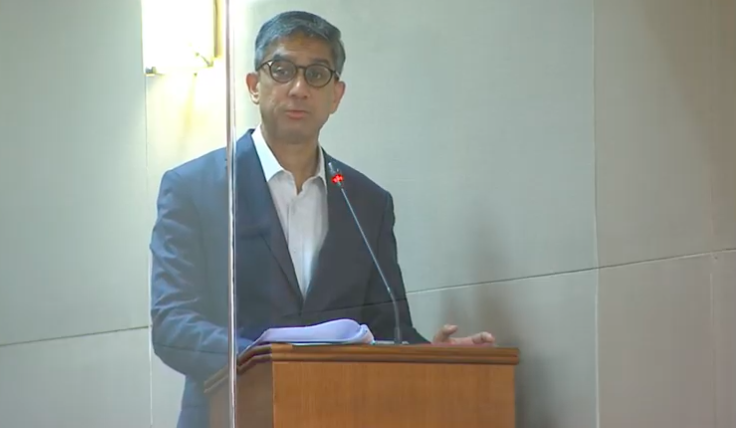Workers' Party Member of Parliament (MP) Leon Perera urged the government to "rigorously audit the impact of our policies – and budget and plan for such measurement", and not allow government schemes to become "black boxes" into which resources get poured.
"We need to score an A for outcomes, not only an A for effort", said the Aljunied GRC MP.
Perera was one of the MPs who spoke on Thursday, Feb. 25 to debate on the Budget delivered by Deputy Prime Minister and Finance Minister Heng Swee Keat.
His speech focused on suggestions for how Singapore's policies can be enhanced to make Singapore companies and workers more future-ready.
Making companies more future-ready
On companies, Perera focused on the local environment for entrepreneurs who might be looking to start up and scale up.
Perera said that it is an important national imperative to cultivate a core of locally-based firms that have the DNA to be globally competitive.
This is so that Singapore could balance its dependence on MNCs who may be fickle and buffeted by the winds of global economics and domestic politics in their home countries.
He questioned whether years of schemes like the Productivity and Innovation Credit in the past, as well as a host of other SME development schemes, had brought Singapore closer to that goal.
Hence, Perera argued that Singapore needs regular and published audits for the SME schemes to establish what causal effect such schemes have had on the long-term growth and competitiveness trajectory of the local firms who used them.
This would subsequently help Singaporeans understand the Return on Investment (ROI) from such schemes and help design better schemes in future.
Perera provided a suggestion on how incentive schemes can help local firms.
He called for some of the schemes to be designed to award MNCs more generous incentives if they work with local partners to share know-how and give the local firms a stake in the new investment.
Helping local workers better adapt from industry disruption
On workers, Perera said that current government programs require workers to seek them out.
However, he said, Singapore needs a "national effort that is more proactive rather than reactive, to nudge workers who are at risk to start thinking about their future career journey and how they can mitigate those risks".
He added that this effort is needed even in industries that are cyclically doing well under Covid-19, but face longer-term existential threats.
For example, Perera noted that while some sections of the retail sector have done well during Covid-19, wholesale and retail has been identified as the sector most vulnerable to displacement in Singapore due to automation, according to a 2018 study.
Perera also spoke about how to improve internships and training attachments.
He suggested that Singapore's economic agencies can engage companies in disruptive industry sectors that have no physical presence in Singapore as yet to take on Singaporeans for traineeships and internships such as the SG United Traineeship,
He said that selected companies could be allowed to offer traineeships or internships through online meetings, training, and virtual engagements, allowing Singaporeans to benefit from training in the "skills, knowledge and culture that resides in these cutting-edge firms."
He also repeated his call to enable Skillsfuture credits to be transferable among family members, citing feedback from older constituents who are keen to transfer their credits to younger relatives, to help them navigate the current job market.
On the localisation of jobs, Perera suggested that the Ministry of Manpower (MOM) and the Ministry of Trade and Industry (MTI) can learn from other developed countries.
He said that in sectors where Singapore struggles to find enough Singaporeans, the MOM and MTI can adopt "benchmark conditions of work" from other developed countries, where there are more locals employed at higher productivity levels.
The ministries can then understand what the gaps are in conditions of work, and take steps to work with industry bodies to plug those gaps, he added.
Raise taxes on transactions in the property sector
Perera said that a broad-based tax hike could have an inflationary impact.
Hence, he suggested that the government can consider raising taxes on transactions in the property sector such as stamp duty and additional buyer’s stamp duties, but only for more expensive properties.
He said that such a fiscal move would be progressive and would impact the capital gains made by sellers in the higher end of the property market.
Moreover, he added, a tax on such a class of capital gains will not run the risk of unintended inflationary effects and will not damage work incentives.
Acknowledging that these increased property taxes may not raise as much revenue as raising corporate tax or GST, Perera said that they would "reduce the need for and extent of a broad-based tax hike."
Top image screenshot via MCI on YoutTube
If you like what you read, follow us on Facebook, Instagram, Twitter and Telegram to get the latest updates.

